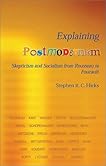"After all manner of professors have done their best for us, the place we are to get knowledge is in books.
The true university of these days is a collection of books." ~ Thomas Carlyle ~
Once again Julia Keller has written an essay that resonates with me. Her comments in the "Arts & Entertainment" section of today's Chicago Tribune entitled Book Binge describes the way I manage my reading. In it she issues "a manifesto for reading many books at a time". This is the strategy that I use to navigate the combination of classes, study groups, reading groups, and other reading in which I am engaged in every day. The result is a several piles of books that I have accumulated near the desk in my study, near my bed, and next to my favorite 'reading' chair in the front 'living' room. Each area includes both books that I am actively reading and books that I will soon start reading. Some books are moved back and forth from room to room while others remain in one of the areas until I am finished reading them or I decide to move them off the active pile. As Julia says in her article, "Life, I maintain, is enriched year-round when live amid a multiplicity of books, all of which you're reading concurrently." For example, my current reading (or rereading in some cases) includes Homer's Odyssey (Fagles' translation, as I have previously read the Lattimore), The Catcher in the Rye, The Fugitive (novel six of seven included in Proust's In Search of Lost Time), and The Slightest Philosophy by Quee Nelson (this last being my main current non-fiction read) while I also have the latest biography of Somerset Maugham and Memoirs of a Revolutionist by Peter Kropotkin underway. While I do not need the excuses for all this reading that I listed above, they do provide one explanation for the multiple books at the same time. I also find I need several books to provide appropriate reading for different venues, for I read less demanding books for reading on the bus or while waiting for the bus to arrive and save more complex works (eg. Proust) for my study at home. While I sometimes, rarely, engage in what Keller calls "serial reading', one book at a time, my days are usually filled with parts of several books, all or almost all enjoyable in their own way. As for me, I call it the reading life.


















